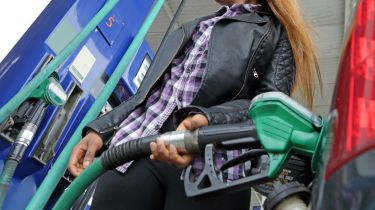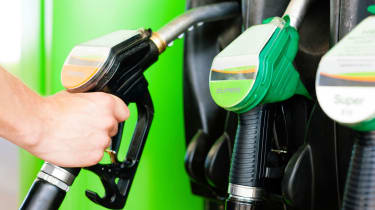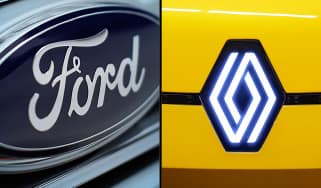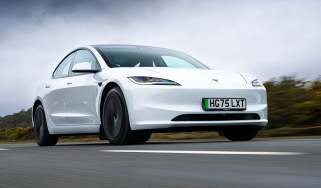Are EV chargers to blame for high petrol prices?
The Competition and Markets Authority’s new report shows wide retailer margins continue to keep fuel prices high

Fuel retailers are blaming EV chargers and wage rises as the main drivers for the historically high margins on petrol and diesel, but dig a little deeper and you’ll find the truth is a little more nuanced.
In its quarterly update on the fuel sector, the Competition and Markets Authority (CMA) set out how the cost of fuel remains stubbornly high despite having dipped in recent months. At the time of writing, petrol sits at an average of £1.34 per litre, while diesel costs around £1.41 per litre.
Part of the reason for these lofty prices are wide retailer margins which, between January 2024 and March this year, averaged as much as 9.2 per cent and 8.1 per cent for standard retailers and supermarkets respectively; compare this to 2019 when margins were around 6.5 per cent and 4.5 per cent respectively for retailers and supermarkets. It’s no surprise, then, that drivers paid £1.6 billion more for fuel in 2023 than they did in 2019.
However, while the CMA’s 2023 market analysis suggests that operational costs weren’t originally a factor in the increased margins, the Petrol Retailers Association (PRA) insists that rises in the National Living Wage, business rates and energy prices, plus a surge in forecourt crime, are all forcing firms to keep prices high.
Interestingly, however, the PRA says that the installation of EV chargers is one of the more notable financial burdens in this regard. The organisation’s executive director, Gordon Balmer, told Auto Express that despite the high margins associated with dispensing electricity via EV chargers: “[PRA] members are finding charging points take a long time – as long as 8-10 years – to recoup the initial cost associated with them. In fact, in some areas of the country it can cost £1.2 million just to ensure a correct level of power is being delivered.”
With all of this combined, Balmer said: “You cannot compare margins from five years ago to today with the hits we’ve had to take.” He pointed out that despite some investment from the Government in the EV charging infrastructure, some independent businesses (which make up 64 per cent of UK forecourts) are forced to fork out large sums to ensure proper connections with the grid.
EV charger roll-out costs for fuel retailers
Of course, it’s worth pointing out that EV chargers are just one piece of what is a wider rise in overall operating expenditure – something the CMA is set to review in its forthcoming annual report later this year.
While fuel firms such as Shell and BP do operate and fund their own charging infrastructure, the majority of EV chargers in the UK are privately funded, owned and operated by the EV charging industry itself. This means that, for the most part, firms such as Ionity, Gridserve and Instavolt ultimately are the ones forking out for the installations, rather than independent forecourt operators, which greatly reduces the impact EV chargers have on day-to-day running costs.

Perhaps of greater concern to the PRA is the closure of UK oil refineries, as a lack of independence in this respect means that many firms will be forced to buy from abroad. “As we start to see refineries disappear, inevitably wholesale prices will go up, [and] if wholesale prices go up, we’ll have to import more, pushing prices up further,” Balmer explained.
Fuel prices: are we paying too much?
Nevertheless, despite the challenges facing the fuel industry, public reaction to the CMA’s findings has been negative; the RAC’s head of policy, Simon Williams, expressed concern, saying: “Given that fuel is a major expense for households, and with eight-in-10 drivers dependent on their cars, it’s disappointing to see they’ve paid over the odds yet again.”
Fuel prices recently spiked due to the conflict between Israel and Iran, with the threat of the closure of the Strait of Hormuz (which five per cent of the world’s oil passes through) pushing them up even further. Thankfully, though, the recent ceasefire has calmed prices, meaning that drivers shouldn’t be feeling too much extra pain at the pumps.
There is some positivity for the future, too; despite the transition to EVs, Balmer believes the fuel industry will continue to thrive over the coming decades. “There’s cause to be optimistic,” he said. “The convenience retail and car wash sectors of businesses are doing well.” Balmer also highlighted how “operators that have invested will also sell a range of fuels”, meaning EV chargers and hydrogen stations will continue to keep forecourts alive.
Want the latest car news in your inbox? Sign up to the free Auto Express email newsletter...




